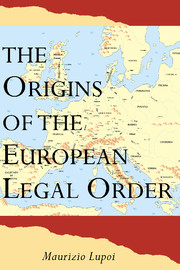Book contents
- Frontmatter
- Contents
- List of abbreviations
- 1 The early Middle Ages: a comparative approach
- 2 A historical and institutional profile of the Roman empire in the fourth and fifth centuries
- 3 Excursus I: ‘Barbarians’
- 4 Historical and institutional profiles of the ‘new dominations’
- 5 Excursus II : The days of the week
- 6 Excursus III: Anglo-Saxon charters
- 7 Consensus by assembly
- 8 Excursus IV: Authority and consensus in judicial decisions
- 9 Public allegiance
- 10 Excursus V: The Anglo-Saxon writ
- 11 Private allegiance
- 12 Open legal systems
- 13 Excursus VI: Textual ‘coincidences’ in documentary forms
- Chronology of popes and sovereigns
- Appendix of sources
- Bibliography
- Index
9 - Public allegiance
Published online by Cambridge University Press: 04 February 2010
- Frontmatter
- Contents
- List of abbreviations
- 1 The early Middle Ages: a comparative approach
- 2 A historical and institutional profile of the Roman empire in the fourth and fifth centuries
- 3 Excursus I: ‘Barbarians’
- 4 Historical and institutional profiles of the ‘new dominations’
- 5 Excursus II : The days of the week
- 6 Excursus III: Anglo-Saxon charters
- 7 Consensus by assembly
- 8 Excursus IV: Authority and consensus in judicial decisions
- 9 Public allegiance
- 10 Excursus V: The Anglo-Saxon writ
- 11 Private allegiance
- 12 Open legal systems
- 13 Excursus VI: Textual ‘coincidences’ in documentary forms
- Chronology of popes and sovereigns
- Appendix of sources
- Bibliography
- Index
Summary
Succession to the throne and the heritability of kingdoms
Only two Indo–European cultures, the Italo–Celtic and the Indo–Iranian, use cognate words to designate the leader of a human group: Celtic rix (Irish ri) and Latin rēx, Sanskrit rāj–(an). According to the linguistic theory of lateral areas, this ought to mean that the word also existed in the median area. The fact that it is unattested in that area suggests that the latter was affected by an innovation which did not reach the external areas.
Happily we do not need to pursue the theory of lateral areas in relation to law, because it is sufficient to point out that Germanic did not have the substantive rēg- (German Reich is a loanword from Celtic), and that although the leaders of the new early medieval kingdoms were all speakers of Germanic languages, they never latinised their native titles. Whilst the humbler officials (discussed below) are often designated by latinised Germanic terms, the leaders of the new kingdoms are invariably rex in Latin documents, and ρήξ in Greek.
On the other hand, the earliest legal texts in Old English, the laws of Æðelbirht, refer to the king as cyning: a term of central importance in the history of Germanic law because it derives from the root kun– ‘kin, family’, which was paralleled in its turn by *gen-, whence derived the Latin gens and the Greek γένος.
- Type
- Chapter
- Information
- The Origins of the European Legal Order , pp. 232 - 302Publisher: Cambridge University PressPrint publication year: 2000



